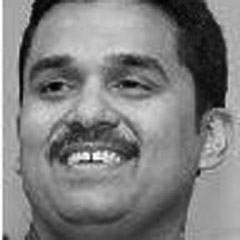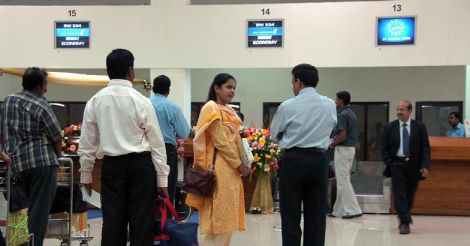Even when everyone praises expatriates for playing a big role in the growth and development of India and especially Kerala, the Centre has taken a crucial step that will have an adverse impact on them.
The decision to merge the Ministry of Overseas Indian Affairs, which worked for about 12 years, with the Ministry of External Affairs will have a lot of repercussions.
The overseas Indian affairs department itself was axed at a time when efforts were on to bring lakhs of overseas Indians closer to the country through voting rights. Does this mean expatriates, who went abroad seeking jobs, need to send only their savings home? Isn’t their motherland duty-bound to look after their welfare?
Even when the Modi government came to power, it did not assign a separate minister to the overseas Indian affairs department. Instead, the minister of external affairs, Sushma Swaraj, was given charge of this department too. However, media had reported that she went to the department only to take charge of the ministry. After that, according to news reports, she has not even once gone to the overseas Indian affairs ministry.
During the formation of the first UPA government, the overseas Indian affairs ministry was formed because of the initiative taken by Congress president Sonia Gandhi. The government took that decision on the basis of the L.M. Singhvi commission report. Till then, overseas Indian affairs was handled by a joint secretary in the external affairs ministry.
The commission said this system was not efficient and recommended a more effective system. Singhvi had recommended the formation of a commission for expatriates. However, considering the long-standing demand of expatriates, the UPA government decided to form a separate ministry. Congress leader Jagdish Tytler was the first overseas Indian affairs minister. When he stepped down, Oscar Fernandes was given interim charge of it.
On January 30, 2006, Vayalar Ravi became the cabinet minister in charge of the overseas Indian affairs ministry. He held that portfolio till the end of the term of the second UPA government.
The ministry has solved many complex problems of expatriates and started many projects for their welfare. A special welfare fund (ICWF) was formed for expatriate workers. This fund averted delays in procedures to bring home the bodies of workers. The ministry also gave a lot of support in realising the voting rights of expatriates.
It signed deals and memoranda of understanding with many countries, including Gulf states, to ensure job safety and social well-being of expatriates. It also found solutions for minimum wage and immediate intervention into the problems of domestic servants. To some extent, these measures helped to shield expatriates from visa frauds and exploitation. Such an important department, which brought relief to lakhs of ordinary expatriates, is now only a memory.
(The writer, the recipient of the Union Government’s Pravasi Bharathiya Samman, is fighting a battle in the Supreme Court for voting rights of expatriates, and is the founder and managing director of VPS Healthcare Group in the UAE)

























 Representative image
Representative image
Disclaimer
The comments posted here/below/in the given space are not on behalf of Manorama. The person posting the comment will be in sole ownership of its responsibility. According to the central government's IT rules, obscene or offensive statement made against a person, religion, community or nation is a punishable offense, and legal action would be taken against people who indulge in such activities.